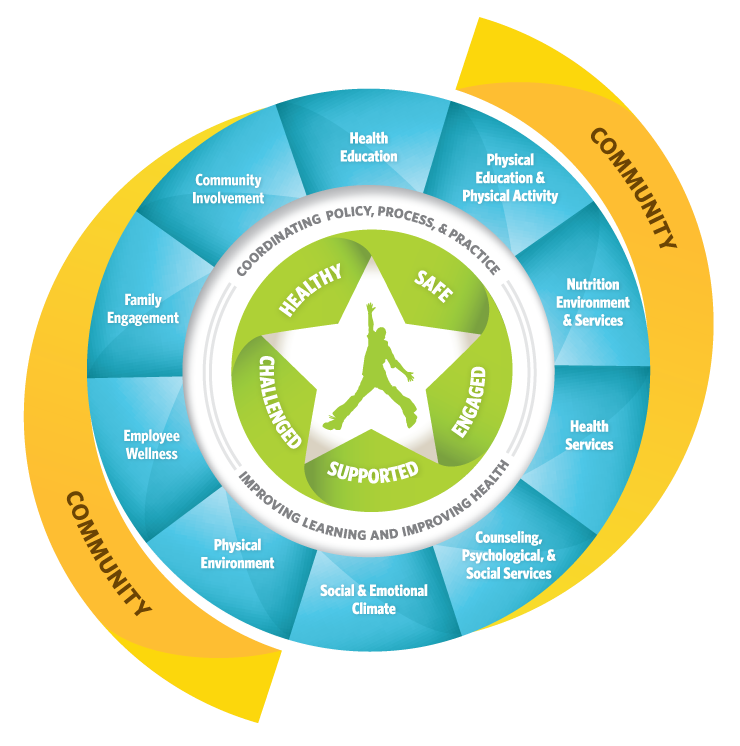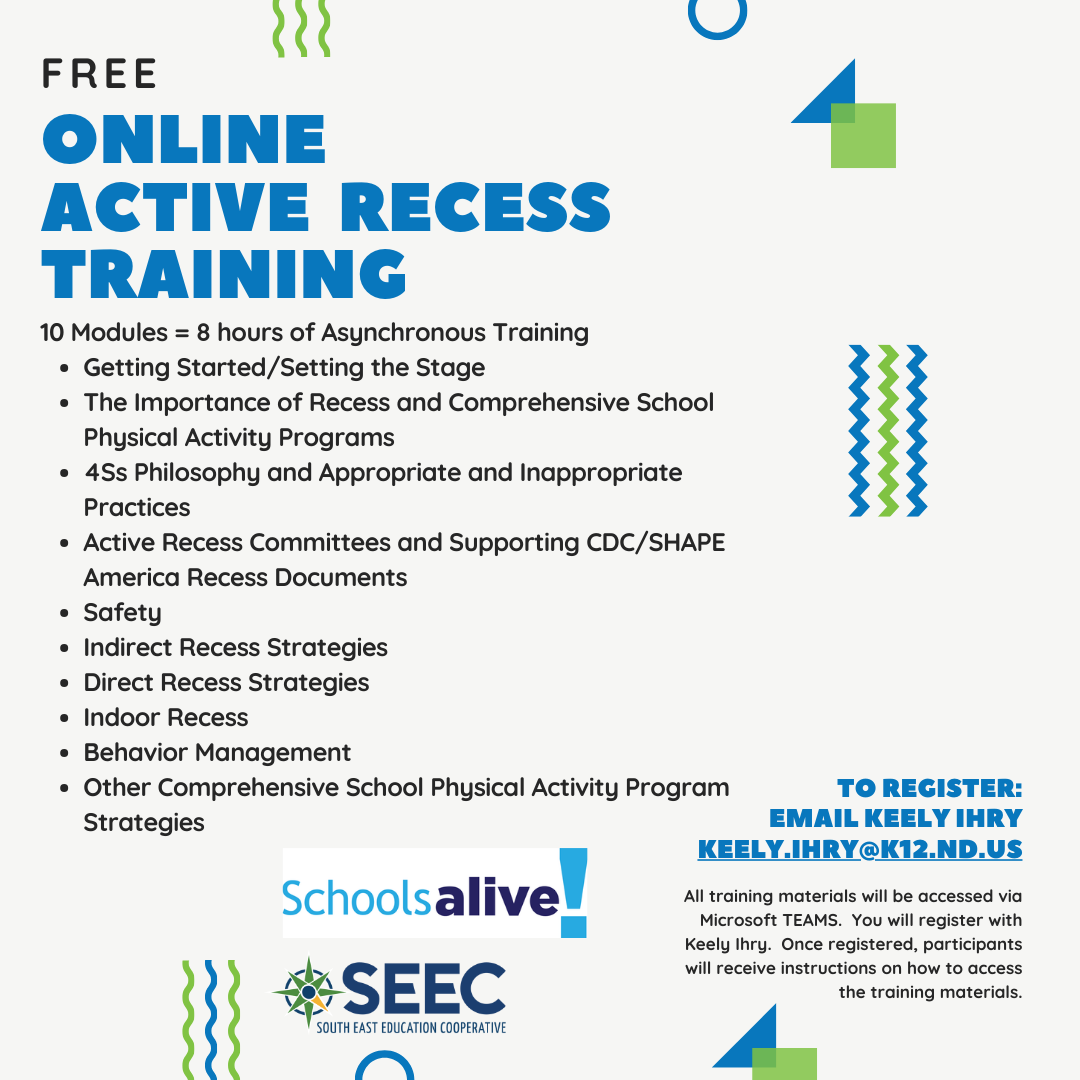Health & Wellness
Whole School, Whole Community, Whole Child: A collaborative approach to learning and health.
The South East Education Cooperative's Healthy Schools Program follows the Whole School, Whole Community, Whole Child (WSCC) model which is an expansion and update of the Coordinated School Health approach. The WSCC model responds to the call for greater alignment, integration, and collaboration between health and education to improve each child's cognitive, physical, social and emotional development.
Healthy, active students are better learners!
The Healthy Schools Program strives to increase the health of all students, and when a culture of health is built, schools will start to see an increase in academic performance, reduction of classroom behaviors and improved cognitive skills and attitudes in their students.
SEEC Health & Wellness
Training Opportunities
Online Active Recess Training
10 Modules = 8 hours of Asynchronous Training
Getting Started/Setting the Stage
The Importance of Recess and Comprehensive School Physical Activity Programs
4Ss Philosophy and Appropriate and Inappropriate Practices
Active Recess Committees and Supporting CDC/SHAPE America Recess Documents
Safety
Indirect Recess Strategies
Direct Recess Strategies
Indoor Recess
Behavior Management
Other Comprehensive School Physical Activity Program Strategies
Contact Keely Ihry to register and get access to the Online Course.
Resources

Healthy Out-of-School Time
Out-of-school time environments play a critical role to empower youth to make healthy choices. Creating environments that promote healthy eating and physical activity encourage youth to become leaders and advocates for healthy behavior changes.

Healthy Schools Summit
The Healthy Schools Summit works to create a culture of wellness by equipping schools with innovative tools to strengthen the connection between healthy students and improved learning!

Physical Activity & Education
Promoting physical activity and quality Physical Education before, during and after the school day has been shown to increase academic performance and social connectedness and decrease things like classroom behaviors and absenteeism.

Smarter Lunchrooms and Culinary Skills Training
The Smarter Lunchrooms Movement nudges students towards healthier options in school cafeterias. School Nutrition staff can learn free and low-cost strategies so schools can see less waste, higher participation, more satisfied students and increased consumption of healthy food choices.
The Culinary Skills Trainings allow for school Nutrition Staff to learn new recipes and skills that can then be taken back to their school’s kitchens.

Smart Snacks, Celebrations, Concessions, Ideas
Schools are now required to meet nutrition standards on all foods sold during the school day. Promoting and encouraging healthy school snacks and celebrations at schools can help to establish healthy habits for a lifetime. There are also ways to continue to offer healthy nutritious foods outside the school day in places like concession stands.

Trauma Sensitive Schools Training
One in four children have been exposed to a traumatic event that may have a lasting impact on the well-being and functioning of students and their families. By understanding how trauma impacts students and adopting a trauma-informed approach, educators can play a crucial role in mitigating both the short and long term effects of trauma. This interactive workshop will leave you with a renewed commitment to reach some of the most vulnerable students and their families.

Wellness Policy and Assessment
Each school district is required to have a local wellness policy to help guide the district’s efforts to establish a school environment that promotes students’ health, well-being and ability to learn. The School Health Index let’s schools see what things they are doing well, and their areas for improvement.




